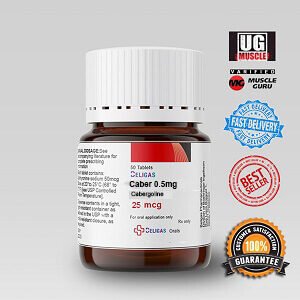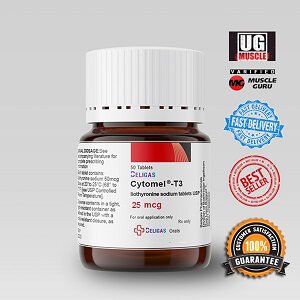Introduction to Testosterone Propionate
Testosterone propionate is a synthetic form of the naturally occurring male hormone, testosterone. As a testosterone ester, it is specifically designed to be a slower-release form of testosterone, thereby extending its biological half-life in the human body. The chemical structure of testosterone propionate involves the attachment of a propionate ester to the testosterone molecule, making it distinct from other esters like testosterone enanthate or cypionate. This esterification process allows for a more controlled release and metabolism, which can be advantageous in various clinical and therapeutic settings.
Testosterone propionate was first synthesized in the 1930s. Its development was a part of pioneering efforts in the field of steroid chemistry and endocrinology aimed at understanding and replicating the effects of natural testosterone. Early research demonstrated that esterifying testosterone could significantly increase its therapeutic potential by prolonging its activity in the body. Consequently, testosterone propionate became one of the first testosterone esters to be marketed commercially and used medically.
This form of testosterone has been utilized for multiple medical purposes over the decades. Initially, it was prescribed to treat testosterone deficiencies in men, such as hypogonadism, where the body does not produce enough testosterone. Additionally, it has been used in the treatment of delayed puberty in boys, certain types of breast cancer in women, and even as part of hormone therapy for transgender individuals. Its applications extend to athletics and bodybuilding, where it is employed to enhance muscle growth, strength, and overall physical performance, albeit often controversially.
Understanding testosterone propionate’s unique properties and its historical context is crucial for appreciating its role in medical science. By differentiating it from other testosterone esters, readers can gain a solid foundation about what makes this compound distinct, thereby setting the stage for deeper explorations into its uses, benefits, and potential effects.
Medical Uses of Testosterone Propionate
Testosterone propionate is a versatile compound with various medical applications. One primary use is in hormone replacement therapy (HRT) for men experiencing low testosterone levels. For these individuals, testosterone propionate helps to restore normal levels of testosterone, leading to improved energy, mood, and overall well-being. This hormone replacement therapy is particularly crucial for counteracting symptoms such as fatigue, depression, and decreased libido.
In addition to its role in HRT, testosterone propionate is utilized in the treatment of delayed puberty in boys. Delayed puberty can be a concerning issue affecting the psychosocial development of adolescents. By administering testosterone propionate, physicians can induce the onset of secondary sexual characteristics, such as increased muscle mass, growth of body hair, and deepening of the voice, thereby facilitating a more normal progression of puberty.
Furthermore, testosterone propionate has shown efficacy in the management of certain types of breast cancer in women. Estrogen receptor-positive breast cancer can sometimes be suppressed through the use of androgens like testosterone. This therapeutic approach aims to inhibit the growth of cancer cells by counteracting the effects of estrogen.
The administration of testosterone propionate is typically done via intramuscular injections, which can be administered by a healthcare professional or self-administered under guidance. Dosage forms and schedules vary depending on the condition being treated and individual patient needs. For hormone replacement therapy, doses might be adjusted based on regular blood tests to ensure maintained levels within the therapeutic range.
In clinical settings, close monitoring of patients is imperative to ensure the efficacy and safety of testosterone propionate therapy. Regular follow-ups typically include blood tests to monitor testosterone levels, liver function, and other relevant parameters. Adjustments to the dosage or administration frequency are made based on these test results and any side effects observed, ensuring an optimal balance between benefits and potential risks.
Benefits and Performance Enhancement
Testosterone propionate is widely recognized not only for its medical applications but also for the numerous performance-enhancing benefits it offers to bodybuilders and athletes. This synthetic form of testosterone functions as a potent androgen, aiding in the development of substantial muscle mass and strength improvements. Users often report significant enhancements in muscle size due to the anabolic properties of testosterone propionate, which promotes protein synthesis and nitrogen retention in muscle tissues.
Strength gains are another prominent advantage attributed to testosterone propionate. By increasing red blood cell production, it enhances oxygen delivery to muscles, thereby improving endurance and allowing athletes to lift heavier weights and perform more intense workouts. Additionally, this hormone accelerates muscle recovery, reducing downtime between training sessions and enabling more frequent and effective exercise routines.
When compared to other anabolic steroids and testosterone variants, testosterone propionate is noted for its rapid onset of action and shorter half-life. This ensures quicker results and relatively less water retention than long-acting esters, providing users with leaner muscle gains. However, its frequent injection requirement, typically every other day, is a consideration that potential users must weigh.
Individuals seeking performance enhancement should also be aware of the ethical and legal implications of using testosterone propionate for non-medical purposes. The misuse of anabolic steroids is banned in most professional sports, and obtaining these substances without a prescription is illegal in many jurisdictions. Moreover, ethical considerations include the fairness of athletic competition and the potential health risks associated with unsupervised usage, such as hormonal imbalances and cardiovascular issues.
In summary, while testosterone propionate offers substantial benefits in muscle mass growth, strength, and recovery, it is crucial to approach its use with a comprehensive understanding of the associated ethical and legal considerations. The long-term health of the user should always be the paramount concern.
Side Effects and Risks
While testosterone propionate is renowned for its benefits, it is not without its drawbacks. Common side effects include acne, hair loss, and mood swings. Acne can result from increased oil production in the skin, while hair loss may occur in those predisposed to male pattern baldness. Mood swings are attributed to hormonal fluctuations that affect neurotransmitter balance.
More severe risks also warrant attention. Cardiovascular issues can arise from elevated cholesterol levels, increasing the likelihood of heart disease. Prolonged use can lead to liver damage, as the liver metabolizes the compound, resulting in hepatic stress. Hormonal imbalances are another concern; excessive testosterone can suppress endogenous hormone production, leading to conditions such as testicular atrophy and infertility.
Medical supervision is paramount in the administration of testosterone propionate. Physicians can monitor hormone levels, liver function, and cardiovascular health, adjusting dosages to mitigate adverse effects. Unfortunately, self-administration without medical oversight poses considerable risks, including incorrect dosing and unrecognized complications.
There are strategies to minimize side effects and promote safer usage. Users can adopt a healthy lifestyle, incorporating regular exercise and a balanced diet to support overall well-being. Monitoring blood work regularly can help detect issues early, allowing for timely intervention. Utilizing aromatase inhibitors to manage estrogen levels and incorporating liver support supplements can also be beneficial. These measures, combined with medical guidance, contribute to a safer experience with testosterone propionate.





Reviews
There are no reviews yet.